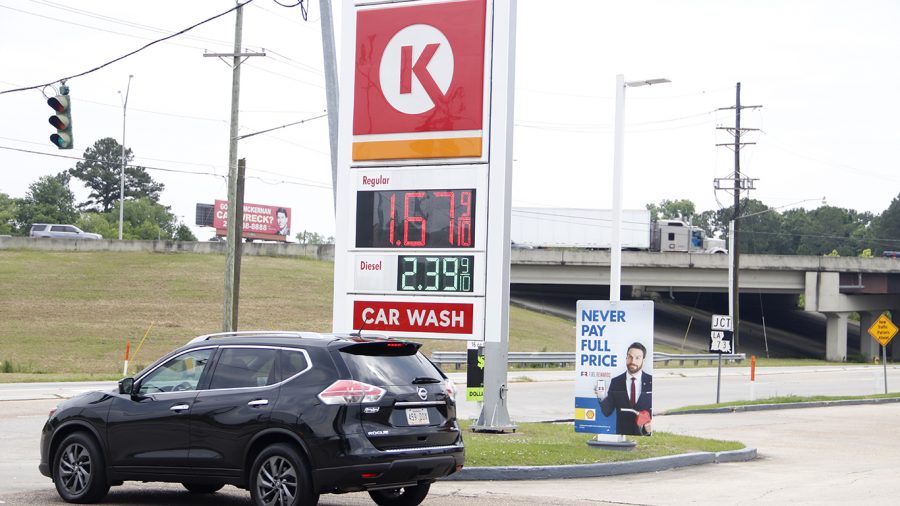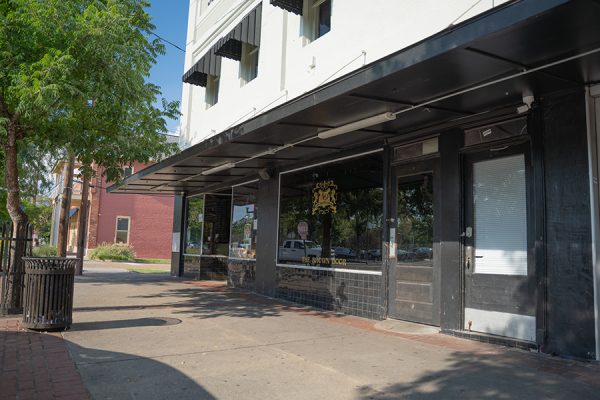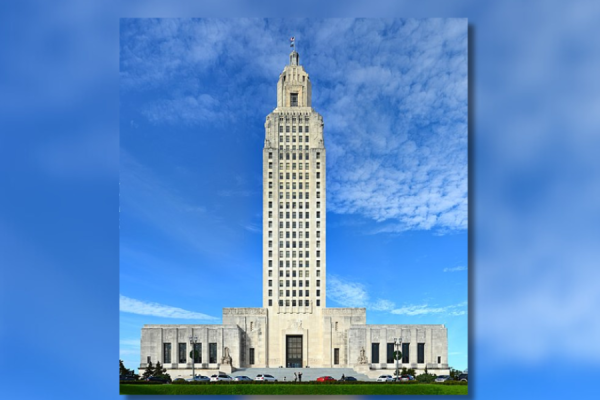Oil prices crash to historic lows amidst lockdown
Dylan Meche/The Lion’s Roar
A Circle K gas station off of I-12 in Baton Rouge displays its gas prices. Gas stations around the country post prices under 2 dollars as the price of crude oil reaches historic lows.
U.S. oil prices plunged to a historic low of below 0 dollars a barrel, causing gas prices around the country to continue their sharp decline.
According to AAA’s website, Louisiana’s average gas price as of April 20 is $1.666 a gallon, which has fallen nearly 20 cents from March’s average of $1.949 a gallon.
Jay Johnson, assistant dean for the college of business and associate professor of economics, explained that the decline was caused by two main factors.
“As people have quarantined by the stay-at-home order, gasoline consumption has fallen by at least 20 percent and probably more,” said Johnson. “At the same time as the decline in demand, the Russian and Saudi Arabian national oil companies announced they could not agree on production cuts, so the supply and inventory of crude oil continued to increase and crude oil prices fell to under $25 per barrel.”
Johnson explained that gas prices are directly tied to crude oil prices and that the decrease in demand and increase in supply put downward pressure on crude oil prices.
Along with the decrease in demand due to stay-at-home orders around the country, Russia and Saudi Arabia are currently engaged in a price war over oil.
Thomas Meyer, associate professor of finance, elaborated on the situation between the two countries and how it has contributed to the fall of gas prices.
“The Russians and the Saudis have decided to play a game of chicken, or in other words, ‘who blinks first,’” explained Meyer. “Both countries have decided that they have enough oil-generated reserves to outlast a price war based on lowering prices and increasing output.”
The price war between the two countries started shortly before several governors in the US issued stay-at-home orders. Johnson explained that this price war caused the two countries to continue production, despite the decrease of demand.
“Normally when there is a significant decline in demand putting downward pressure on prices, the producers all over the world would begin to decrease production or supply in order to maintain prices,” stated Johnson. “However, Saudi Arabia leads a cartel of national oil-producing countries called OPEC and Russia leads another coalition of oil-producing states, and these groups of oil producers did not have a plan in place as the decline in oil demand came so rapidly.”
Despite being good for the consumer, low gas prices significantly damage the economy. Rusty Juban, professor of business, explained how this especially affects economies like Louisiana’s, which depends on high gas prices.
“As the tax on oil is based on the sale price, the lower the sale price, the lower the tax revenue that is generated,” said Juban. “Louisiana will lose hundreds of millions from the taxes on oil and its refinement into gasoline.”
Meyer further elaborated that low gas prices could negatively affect oil workers, energy companies and other businesses.
“They are bad for oil-worker jobs,” explained Meyer. “Energy companies, especially high-cost producers, end up going bankrupt finance and transportation sectors.”
Even if Russian and Saudi Arabian oil companies reach a deal to end the price war, Johnson believes that the price of crude oil will not increase until the pandemic ends.
“In all likelihood, they will reach some agreement to reduce production, which will boost prices,” said Johnson. “Regardless, the biggest problem the oil-producing countries and companies face is the decline in demand. That will not reverse itself until this pandemic is over and demand for fuels to travel and transport goods and services begins to return.”
During a weekly Coronavirus Task Force press conference on April 20, President Donald Trump stated that the United States is considering buying the surplus of oil to decrease the supply in global circulation.
Your donation will support The Lion's Roar student journalists at Southeastern Louisiana University.
In addition, your contribution will allow us to cover our annual website hosting costs.
No gift is too small.

Dylan Meche is a Political Science major from Baton Rouge and serves as Opinions Editor. He has been a reporter for The Lion's Roar since August of 2019....






